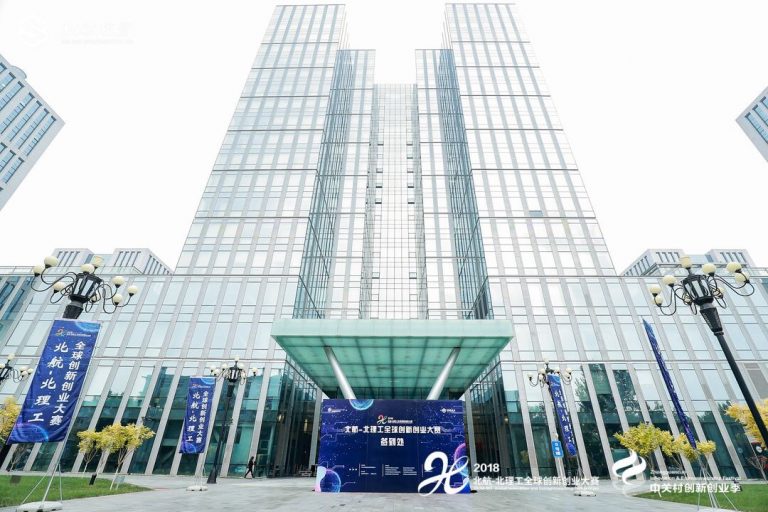
Two of China’s leading STEM application institutions launched an innovation competition on October 16th in an event that showcased a vast expanse of industrial technology including space technology, industrial vehicle applications, smart manufacturing, information technology, new materials, and highlighting examples of military and civil technology integration.
Winners of the Global Innovation and Entrepreneurship Competition, which is organized by the Beijing University of Aeronautics and Astronautics (BUAA) and Beijing Institute of Technology (BIT), will be announced in December. The competition was first held in 2017.
Offering up to RMB 500,000 (around $72,000) to winners and potential access to investment from alumni, the competition aims to discover early-stage high-tech applications, and emerge as a platform where “innovators meet investors,” according to organizers.
While the blueprint may resemble that of an incubator or accelerator, the BUAA-BIT alliance wants to tap close innovator-investor relationships built on alumni associations. The competition also hopes to become a channel for private financing and help non-state-backed institutions discover tech investment opportunities.
This plan has been welcomed by the administrative and technology departments of Haidian, the district of Beijing that is home to the institutions. Haidian also hosts some of China’s top institutions including Peking University and Tsinghua University.
The competition launch event featured four existing companies or projects with connections to the organizers.
Galaxy Energy is a BUAA alumni project that focuses on innovation in rocket fuel ingredients and supply to reduce launch costs.
“There is massive potential in China’s private space exploration,” a spokesperson from Galaxy Energy said. “State policies are now backing up the field, which signals acknowledgment to guide more private capital to enter.”
Tencent’s AI incubation beneficiary Cool High Technology, a BUAA alumni project and collaboration partner of UC Berkeley, specializes in flying devices for use cases including fire rescue, anti-terrorism, science sample collection, and even flying cars. The company also owns a factory in Virginia, in the US.
Wanting to safeguard their technology, many of the startups were cautious about publicity or sharing their cooperation opportunities, even within the alumni clubs.
For example, FM Aviation Technology, a company that produces high-capacity logistic drones and cooperates with Alibaba’s Cainiao, SF Express, and JD.com, hid the name and other personal information of its chief technology officer when it introduced the background of its R&D activities. The company’s latest drone model FM150, with a max capacity of 1.5 tons and 50-meter departure and landing distance, will complete its first flight by the end of this year.
Adhere Miracle, a company started by undergraduate students who upgraded industrial robots’ ability to process clothing materials with electrostatic technology without causing wrinkles or damage, said the company is extremely cautious regarding market application strategy. Though having already built a cooperation relationship with suppliers of Adidas, Nike, and Uniqlo, Adhere said it sees the competition as one step toward real case application.


